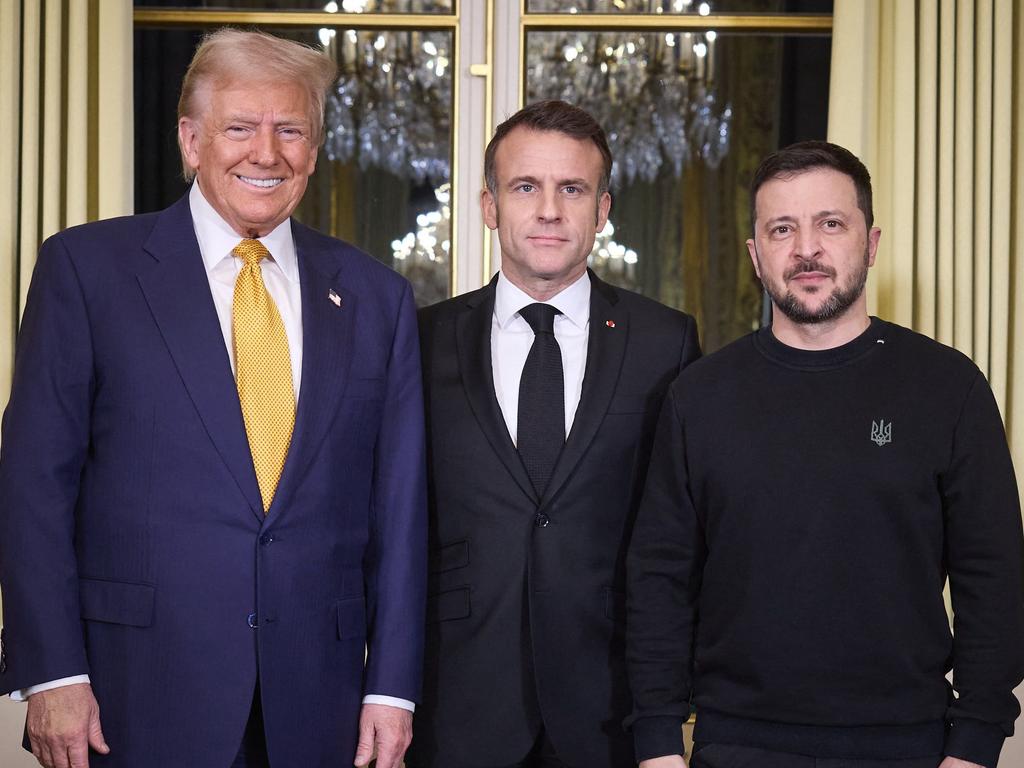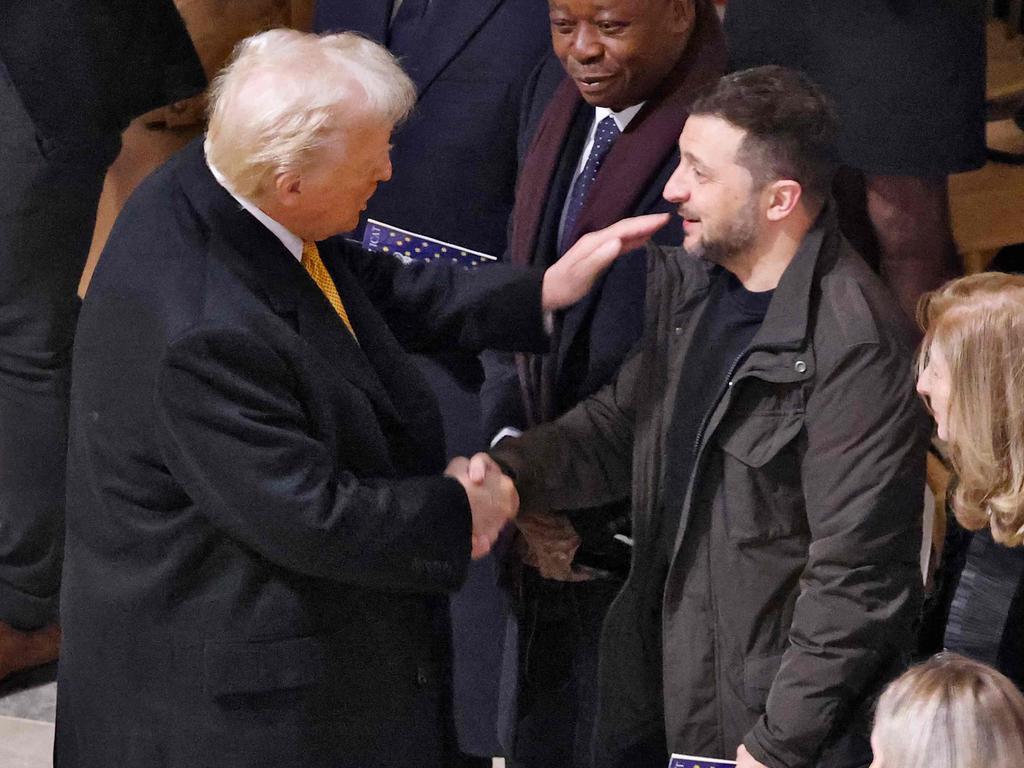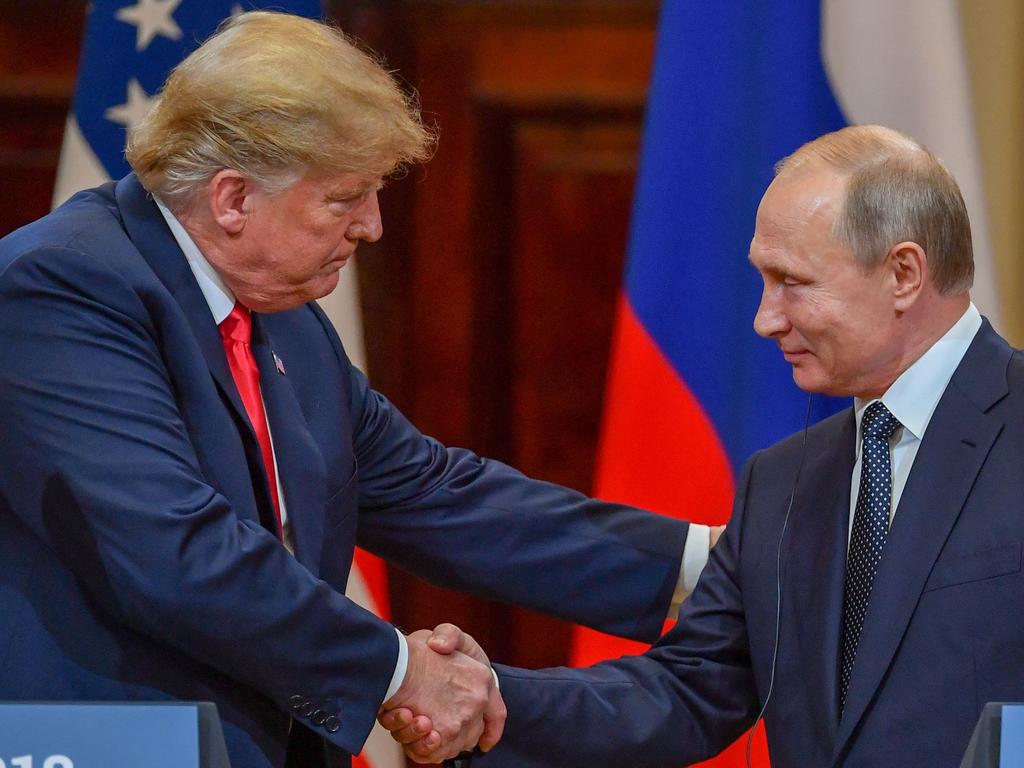The ongoing war in Ukraine has reached a critical juncture, with renewed diplomatic efforts spotlighted by U.S. President-elect Donald Trump’s recent call for an immediate ceasefire and negotiations between Russia and Ukraine.
This unprecedented move, which Trump has framed as essential to “stop the madness,” has sparked a global conversation about the potential for a lasting resolution and the far-reaching implications for international diplomacy.
A Bold Declaration
Donald Trump, speaking through his Truth Social platform after a high-stakes meeting in Paris with Ukrainian President Volodymyr Zelensky and French President Emmanuel Macron, outlined a vision for swift resolution. “Zelensky and Ukraine would like to make a deal and stop the madness,” Trump declared, reiterating his campaign assertion that he could end the war in “24 hours.”
Criticizing the heavy toll of the conflict, Trump claimed that Ukraine had “ridiculously lost 400,000 soldiers and many more civilians.” He appealed for a ceasefire, emphasizing the devastating human cost and the potential for escalation into a broader conflict.
This approach has generated mixed reactions internationally, reflecting the complexities of balancing peace negotiations with justice and security concerns.
Seeking a Just Peace
President Zelensky’s response to Trump’s overtures underscores Ukraine’s cautious stance. While he acknowledged Trump’s “unwavering resolve” and described their discussions as “good and productive,” Zelensky reiterated the importance of an equitable peace.
“We all want peace,” Zelensky said, “But it is significant for us … that the peace is just for all of us.” For Ukraine, this means ensuring that Russia, under President Vladimir Putin, or any other aggressor, cannot return to threaten the nation’s sovereignty.
Zelensky’s firm stance reflects a key tension in the conflict: achieving a diplomatic resolution without compromising Ukraine’s territorial integrity and security. This position is echoed by his calls for “strong security guarantees” as part of any settlement, signaling the challenges ahead for negotiators.
France’s Role in Bridging Divides
French President Emmanuel Macron’s involvement in the Paris talks highlights Europe’s critical role in mediating the conflict. Macron’s leadership has been pivotal in advocating for diplomatic channels while supporting Ukraine through economic and military aid.
Hosting the meeting at the Élysée Palace, Macron offered an opportunity for Trump and Zelensky to explore common ground. For Macron, these discussions also allowed him to gauge Trump’s approach to foreign policy as he prepares to take office. France’s strategic interest lies in ensuring regional stability while maintaining transatlantic solidarity.

Macron’s inclusion reflects the broader European Union perspective, where leaders are grappling with the dual imperatives of supporting Ukraine and avoiding the spillover of the conflict into neighboring regions.
The Biden Administration and Trump
The diplomatic landscape is further complicated by contrasting approaches between the outgoing Biden administration and the incoming Trump presidency. Hours after Trump’s Paris talks, the Pentagon announced a new $988 million military assistance package for Ukraine, including advanced weaponry and support systems.
This move underscores the Biden administration’s continued commitment to Ukraine’s defense, a stance that Trump has repeatedly criticized. Throughout his campaign, Trump questioned the efficacy of billions of dollars in military aid, suggesting that a focus on diplomacy could yield faster and more sustainable results.
This division raises questions about how Trump’s policy will differ in practice and whether his approach will resonate domestically and internationally.
Putin’s Next Moves
Russia’s response to Trump’s call for a ceasefire remains a pivotal factor. Trump, emphasizing his rapport with Vladimir Putin, declared, “I know Vladimir well. This is his time to act.” This statement hints at Trump’s belief that he can leverage his relationship with the Russian leader to broker peace.
However, Moscow’s recent escalation of attacks suggests a more complex reality. As both Kyiv and Moscow prepare for Trump’s inauguration, the Kremlin appears focused on consolidating territorial gains and maintaining leverage in any potential negotiations.
For Putin, any agreement must align with Russia’s strategic goals, including the recognition of annexed territories and the lifting of sanctions. These demands are likely to clash with Ukraine’s insistence on sovereignty and security guarantees, complicating Trump’s vision of a swift resolution.
The Role of China and the International Community
Trump’s call for international involvement, including a notable reference to China, signals the broader geopolitical stakes of the Ukraine conflict. “China can help. The World is waiting!” Trump declared, hinting at the potential for a multilateral approach to peacebuilding.
China’s involvement, however, comes with its challenges. Beijing has maintained a delicate balancing act, officially promoting peace talks while avoiding overt criticism of Russia. Its role as a mediator would require navigating the complexities of its strategic partnership with Moscow and its broader global ambitions.
The international community, including organizations like the United Nations, will need to consider how to support negotiations without undermining established principles of territorial integrity and sovereignty.
A Catalyst for Action
At the heart of the diplomatic discussions lies the devastating human cost of the conflict. Trump’s emphasis on the lives lost and families destroyed reflects a broader acknowledgment of the urgency for peace.
Ukraine has faced immense suffering, with cities reduced to rubble and millions displaced. The international community’s response, from humanitarian aid to refugee support, has highlighted the shared responsibility to address the crisis.

For many observers, the urgency of the situation underscores the need for innovative diplomatic solutions that prioritize human lives while addressing the root causes of the conflict.
A Pivotal Moment for Diplomacy
As Trump prepares to assume the presidency, the Ukraine conflict represents a defining test of his administration’s foreign policy. The Paris meeting has offered a glimpse into Trump’s strategy, characterized by a mix of bold declarations and pragmatic engagement.
The path to peace will not be easy. Achieving a ceasefire and initiating negotiations will require reconciling divergent interests, managing domestic and international expectations, and addressing the profound mistrust between Kyiv and Moscow.
For Ukraine, the goal remains clear: a just and lasting peace that ensures its sovereignty and security. For the international community, the challenge lies in supporting this vision while fostering conditions for meaningful dialogue.
Diplomacy at the Crossroads
The calls for an immediate ceasefire in Ukraine, led by Trump and echoed by Zelensky and Macron, have brought the conflict to a critical diplomatic crossroads. The coming months will determine whether these efforts can translate into tangible progress or whether the region will continue to endure the horrors of war.
As the world watches, the stakes could not be higher. The diplomatic decisions made today will shape the future of Ukraine, the stability of Europe, and the principles of international order in an era of mounting global challenges.



